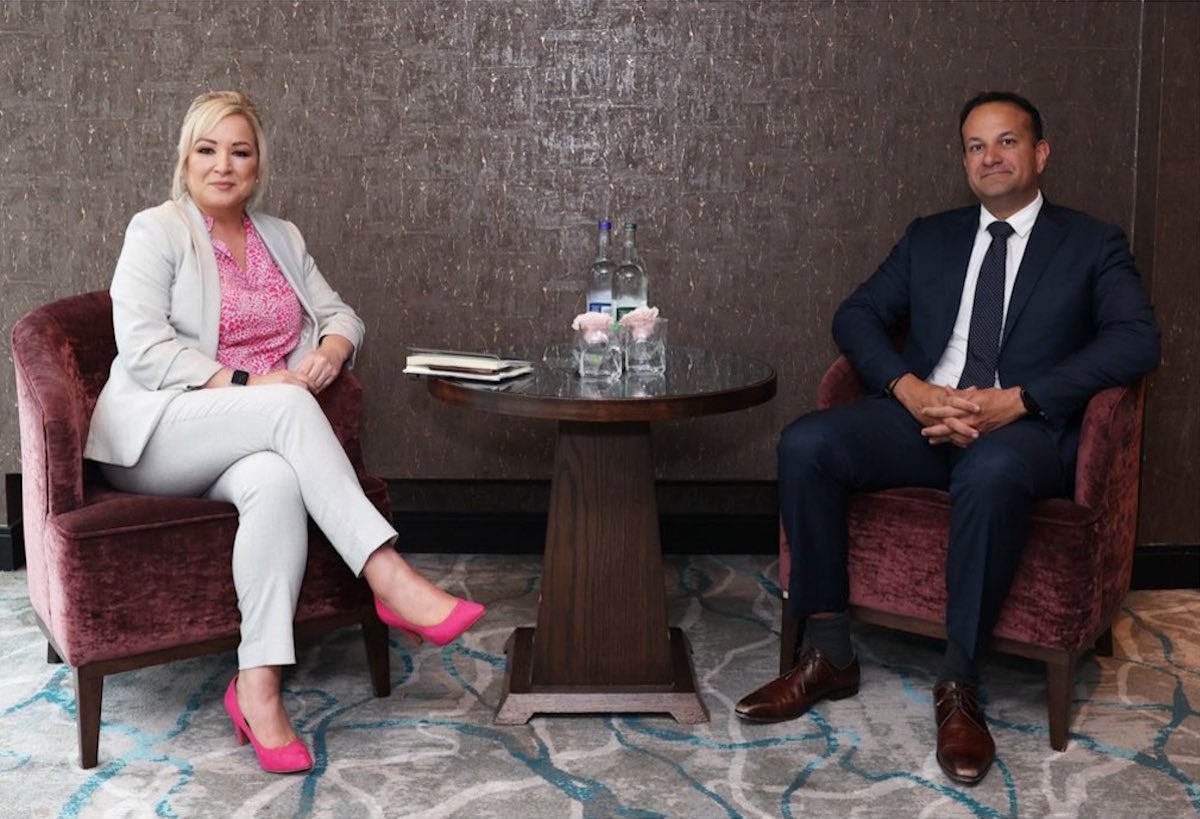
The 26 County Taoiseach, Leo Varadkar, has met leaders of the five main political parties in Belfast in the latest efforts to end 18 months of collapsed government in the north of Ireland.
Mr Varadkar said he “remains hopeful” that Stormont will be restored by autumn but that “alternatives” must be discussed if the political crisis continues.
“If it’s the case that the institutions can’t be re-established in the autumn, well, then I do think at that point we have to start having conversations about alternatives, about Plan B,” he said.
“That’s very much a conversation that I’m keen to have with the UK government. I don’t want to speculate too much at the moment because I still believe it is possible to get the institutions up and running in the autumn. I do think the suspension has gone on for a long time. There is drift. And that’s not good for northern Ireland.”
Asked what those alternatives would be, he replied he did not want to discuss that.
The development follows Varadkar’s criticism of the London government on Monday when he admitted it was reluctant to involve Dublin in relation to the North’s political stalemate.
The Taoiseach had told journalists there was a “reluctance” in Downing Street to work in a “hand in glove” manner and to “apply both pressure and support” in a coordinated fashion.
“If we don’t seize this window of opportunity in the next couple of months, talk will turn both in Belfast and in London to the next Westminster elections, and it might be after that before we can get things going again,” he said.
After her meeting with Mr Varadkar, Sinn Féin’s first minister designate, Michelle O’Neill, said “public patience is wearing thin” with the DUP. She said she agreed with the Taoiseach that the British and Irish governments need to be working together to revive the Six County Executive.
“I’ve heard more urgency from the Taoiseach today than I’ve heard from the British government in terms of the need to restore the Executive,” she said.
DUP leader Jeffrey Donaldson, whose party continues to veto the operation of the North’s political institutions, said his party is still focused on Brexit.
He said that he wants Stormont restored and “properly functioning,” but that he needs to see a deal “that protects in law our ability to trade within the UK internal market with the rest of the United Kingdom.”
While in Belfast, Mr Varadkar also held engagements with business leaders and met with representatives from the Gaelic Athletic Association, amid rising pressure for a referendum on Irish reunification. Recent local elections, which confirmed there are now more nationalists than unionists in the area under British rule, had added impetus to civic demands for a managed transition to Irish unity.
Meanwhile, a former Ulster Unionist leader has admitted the north of Ireland is “a mess that leaves Sinn Féin laughing all the way to the political bank.”
Reg Empey, who led the UUP between 2005 and 2010, said the deadlock over devolved government is a story of “strategic failure on an unprecedented scale.”
He said that unionism “is coming yet again to another crossroads”, warning: “The status quo cannot continue.”
He said the fundamentals of the Windsor Framework – agreed between London and the EU to overcome issues with the Irish protocol of Brexit – will not be changed.
“Under these circumstances, unionism must reflect on the corner into which we have been painted,” he added.
“We cannot continue to be a steadily declining entity seen as failing to deliver for people while they face huge social and economic challenges.
“There is another way, and there must be a frank conversation about how we extricate ourselves from a mess that leaves Sinn Féin laughing all the way to the political bank.”
![[Irish Republican News]](https://republican-news.org/graphics/title_gifs/rn.gif)
![[Irish Republican News]](https://republican-news.org/graphics/title_gifs/harp.gif)

